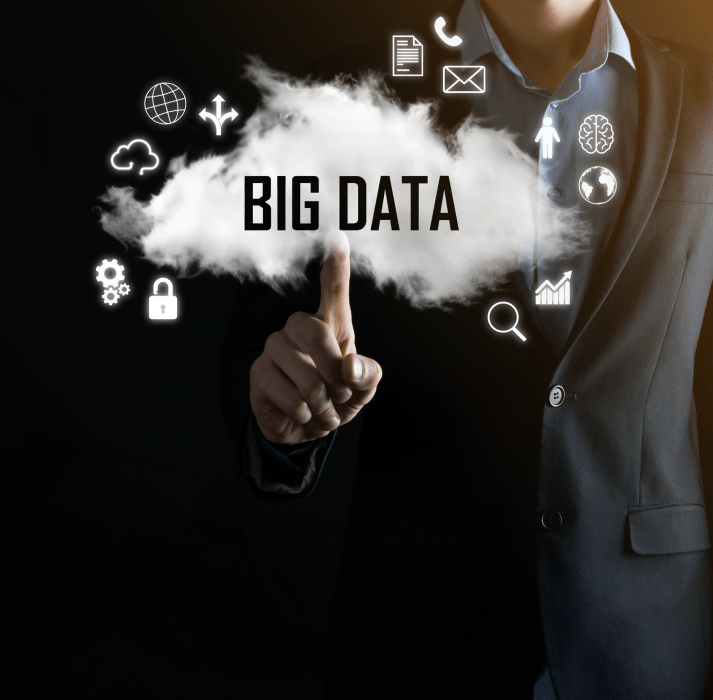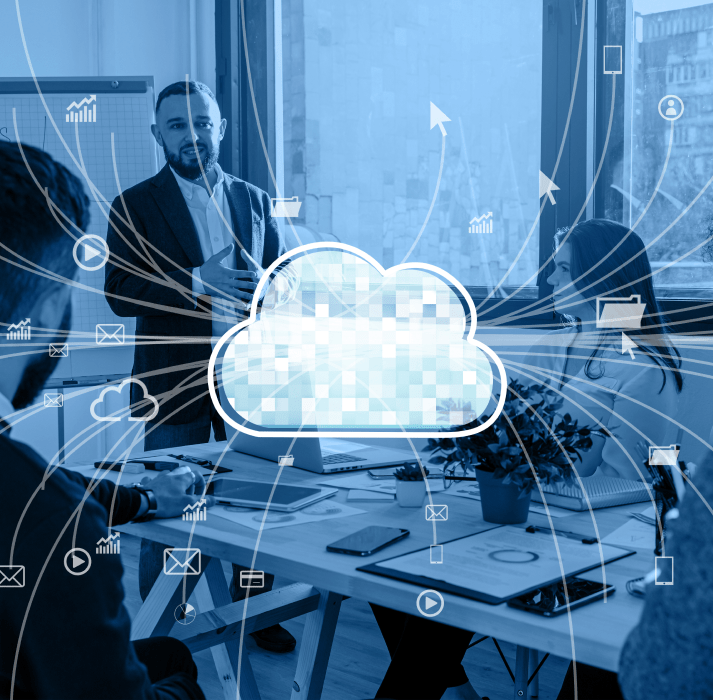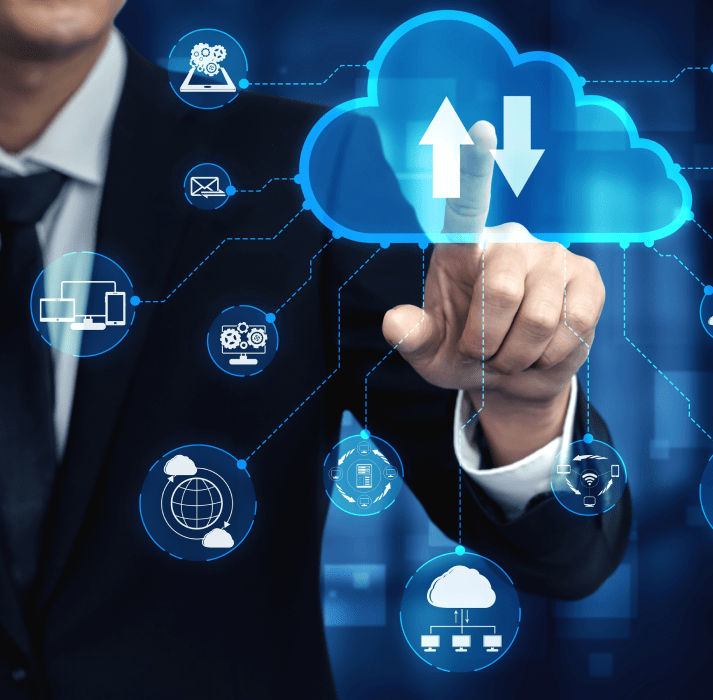IT Software Solutions
Comprehensive IT Solutions covering technical evaluations, needs assessments, technology selection, project management,
team outsourcing and end-to-end custom application design and development.

Software Development
Software development is the process of designing, creating, testing, and maintaining
software applications to meet specific user needs or solve complex business
challenges. It involves a range of activities, including requirement analysis, coding,
debugging, and deploying software solutions across various platforms. Utilizing
methodologies such as Agile or DevOps, software development teams work
collaboratively to deliver high-quality, scalable, and secure software that aligns with
the evolving demands of users and businesses alike. Effective software development
not only drives innovation but also enhances operational efficiency, customer
satisfaction, and competitive advantage in the digital marketplace.
Big Data Solutions
Big Data solutions involve the use of advanced technologies and methodologies to
collect, process, and analyze vast volumes of data that traditional systems cannot
handle efficiently. These solutions enable organizations to extract valuable insights
from structured and unstructured data sources, such as customer interactions,
social media, and IoT devices. By leveraging Big Data, companies can make data-
driven decisions, optimize operations, personalize customer experiences, and predict
future trends with greater accuracy. Big Data solutions are critical for businesses
looking to gain a competitive edge, improve performance, and drive innovation in
today’s data-rich environment.

ERP Systems
Enterprise Resource Planning (ERP) systems are integrated software platforms that
help organizations manage and streamline their business processes across various
departments such as finance, human resources, supply chain, manufacturing, and
customer relationship management. By consolidating data into a single system, ERP
improves operational efficiency, enhances decision-making through real-time data
analysis, and reduces costs by automating routine tasks. It provides a centralized
view of business activities, enabling better collaboration and improved accuracy in
reporting. ERP systems are vital for organizations aiming to scale, maintain
compliance, and adapt to market changes efficiently.
Database Management
Database management refers to the systematic approach of storing, organizing,
and retrieving data in a structured manner. It involves the use of specialized software,
known as Database Management Systems (DBMS), to ensure that data is easily
accessible, secure, and efficiently managed. DBMS supports data integrity, reduces
redundancy, and allows for multiple users to access and manipulate data
concurrently. Effective database management is critical for businesses as it enables
streamlined operations, enhances data accuracy, and supports better decision-
making by providing reliable, real-time information. It also plays a key role in data
security, ensuring proper access controls and backup procedures.


Cloud Services
Cloud services refer to a wide range of computing resources and services delivered
over the internet, offering businesses and individuals scalable and flexible access to
software, storage, processing power, and other digital infrastructure. These services,
provided by companies like Amazon Web Services (AWS), Microsoft Azure, and
Google Cloud, enable users to store data, run applications, and perform computing
tasks without the need for on-premises hardware. Cloud services are cost-effective,
as users typically pay only for the resources they use, and they offer benefits such as
increased collaboration, remote access, disaster recovery, and automatic updates.
They are essential for modern businesses seeking agility, scalability, and global reach.
Web/App Development
Web and app development involves the creation of websites and mobile
applications designed to provide interactive and functional digital experiences. It
encompasses various stages, including planning, design, coding, testing, and
deployment. Web development focuses on building responsive and dynamic websites
using technologies such as HTML, CSS, JavaScript, and backend frameworks, while
app development typically involves platforms like Android or iOS and programming
languages such as Swift, Kotlin, or Flutter. Both web and app development are crucial
for businesses aiming to engage users, improve customer experience, and streamline
services. With the growing demand for online presence, these developments play a
key role in digital transformation and business growth.

CRM Development
Customer Relationship Management (CRM) development involves creating
customized systems that help businesses manage and enhance their interactions
with current and potential customers. A CRM system centralizes customer data,
automates marketing, sales, and service processes, and provides valuable insights
into customer behavior and preferences. Through CRM development, businesses can
tailor features to suit their specific needs, such as lead tracking, sales forecasting,
customer support, and personalized communication. By improving customer
engagement, streamlining operations, and facilitating collaboration between teams,
a well-developed CRM system strengthens customer relationships and ultimately
boosts business growth and retention. It plays a vital role in ensuring businesses can
deliver personalized experiences and foster long-term loyalty.
HRMS Development
Human Resource Management System (HRMS) development focuses on creating
software solutions that streamline and automate various HR functions within an
organization. An HRMS integrates processes such as recruitment, employee
onboarding, payroll, performance management, attendance tracking, and benefits
administration into a single, cohesive platform. By developing a customized HRMS,
businesses can optimize workforce management, reduce administrative burdens,
and ensure compliance with labor laws and regulations. Additionally, HRMS
development enhances data accuracy, enables better decision-making through
real-time analytics, and improves employee engagement by offering self-service
features. A well-developed HRMS helps organizations manage their talent more
effectively, leading to increased productivity and operational efficiency.

BFSI Solutions
BFSI (Banking, Financial Services, and Insurance) solutions are specialized
technology-driven services designed to meet the unique needs of the financial sector.
These solutions encompass a wide range of tools, including digital banking platforms,
financial management software, insurance management systems, payment
gateways, and regulatory compliance tools. BFSI solutions help institutions optimize
operations, enhance customer experience, and ensure data security while adhering
to stringent industry regulations. By leveraging technologies such as AI, blockchain,
and cloud computing, these solutions facilitate faster transactions, personalized
services, fraud detection, and risk management. In a rapidly evolving financial
landscape, BFSI solutions enable organizations to remain competitive, drive
innovation, and achieve operational excellence.
Telecom Solutions
Telecom solutions refer to a broad range of technologies and services designed to
enhance communication networks and services for telecommunications providers
and businesses. These solutions include network infrastructure management, mobile
and broadband services, VoIP (Voice over Internet Protocol), 5G implementation, and
cloud-based communication systems. Telecom solutions enable seamless, reliable,
and high-speed connectivity, supporting everything from voice and video calls to
data transmission and IoT (Internet of Things) applications. They are critical for
improving customer experience, reducing operational costs, and ensuring scalability
as demand for data and communication services grows. With the rise of advanced
technologies like 5G, telecom solutions are key to driving innovation and enabling
digital transformation across industries.


E-Commerce Platforms
E-commerce platforms are sophisticated software solutions designed to facilitate
online retail and trade. These platforms offer a comprehensive suite of features that
enable businesses to create and manage digital storefronts, handle transactions, and
engage with customers. Key functionalities include product catalog management,
shopping cart integration, secure payment gateways, and order fulfillment. Platforms
like Shopify, WooCommerce, and Magento provide businesses with customizable
templates and tools to tailor their online presence, optimize user experience, and
streamline operations. This flexibility is crucial for accommodating diverse business
needs, from small startups to large enterprises, and supports various sales models,
including B2C, B2B, and C2C.
Delivery Apps
Delivery apps are mobile and web-based platforms that facilitate the efficient
transportation of goods, meals, or services directly to customers’ locations. These
apps streamline the delivery process by allowing users to browse products or menus,
place orders, make secure payments, and track deliveries in real-time. Popular in
industries like food, retail, and logistics, delivery apps such as Uber Eats, DoorDash,
and Amazon have revolutionized customer convenience by offering fast, reliable, and
on-demand service. For businesses, delivery apps help expand customer reach,
improve order management, and enhance customer satisfaction through seamless
experiences. As consumer expectations for convenience and speed grow, delivery
apps play a vital role in modern commerce and service delivery.

Cyber Security
Cybersecurity involves the practice of protecting computer systems, networks, and
data from digital aattacks, unauthorized access, and damage. As cyber threats grow
increasingly sophisticated and pervasive, cybersecurity measures become essential
for safeguarding sensitive information and maintaining the integrity of digital
operations. Key aspects of cybersecurity include implementing robust firewalls,
encryption, and multi-factor authentication, as well as conducting regular security
assessments and vulnerability scans. Effective cybersecurity strategies also involve
employee training to recognize phishing scams and other social engineering tactics.
By prioritizing cybersecurity, organizations can defend against data breaches, prevent
financial losses, and ensure the privacy and trust of their customers. In an era where
digital assets are integral to business success, robust cybersecurity is crucial for
mitigating risks and securing the digital landscape.
Cab/Taxi Dispatch Apps
Cab and taxi dispatch apps are digital platforms that facilitate the efficient
coordination of transportation services between drivers and passengers. These apps
enable users to request rides, track the location of their assigned vehicle in real-time,
and make secure payments through their mobile devices. Features such as dynamic
fare pricing, driver ratings, and estimated arrival times enhance the user experience
and ensure transparency. For drivers, these apps offer access to a steady stream of
ride requests, route optimization, and earnings tracking. Popular apps like Uber, Lyft,
and Ola have revolutionized urban transportation by providing a more convenient,
reliable, and user-centric alternative to traditional taxi services. By leveraging GPS
technology and real-time data, cab and taxi dispatch apps streamline the
transportation process, improve operational efficiency, and offer a higher level of
service to both passengers and drivers.

